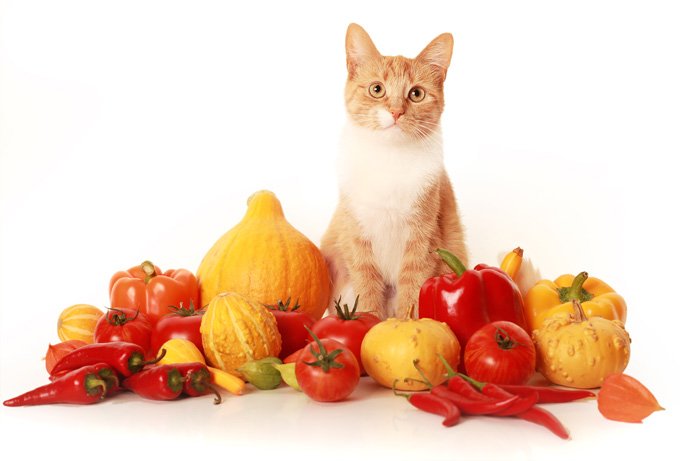Introduction
Welcome, fellow feline enthusiasts! Today, we embark on a whisker-twisting journey into the contentious realm of veganism for cats. As an animal expert with a passion for purring companions, I’m here to debunk the myth that our furry friends should follow our dietary choices. Buckle up, folks, because we’re diving deep into why your cat shouldn’t go vegan.
Understanding the Carnivorous Conundrum
Unraveling the Feline Diet
Let’s start with a simple truth: cats are obligate carnivores. That’s right, folks! Your fluffy little hunter is biologically programmed to feast on meat. Unlike their omnivorous human counterparts, cats lack the necessary enzymes and metabolic pathways to thrive on a plant-based diet alone.
Unveiling the Nutritional Needs
Cats have specific nutritional requirements that are only met through animal-derived nutrients. Taurine, for example, is an amino acid vital for feline health, found primarily in animal tissues. Without sufficient taurine, cats can develop serious health issues, including heart disease and vision problems.
Consulting the Experts
But don’t just take my word for it! Vets and government bodies worldwide echo the sentiment that cats require meat in their diets to flourish. The American Veterinary Medical Association (AVMA) emphasizes the importance of meat-based diets for cats to meet their unique nutritional needs. So, when it comes to your cat’s diet, trust the pros!
Debunking Vegan Myths
Separating Fact from Fiction
Now, let’s address some common misconceptions surrounding vegan diets for cats. While it’s understandable to want to extend our ethical beliefs to our pets, imposing a vegan diet on a carnivorous creature isn’t just misguided—it can be downright dangerous.
Myth: Cats Can Thrive on Plant-Based Diets
Some proponents of feline veganism argue that with careful planning and supplementation, cats can thrive sans meat. However, this notion is as flimsy as a catnip toy. While certain nutrients can be synthesized or sourced from plants, they’re often not in a form that cats can readily absorb and utilize.
Myth: Vegan Diets Are More Ethical
It’s true that concerns about animal welfare drive many to explore veganism. But let’s not forget that cats are carnivores by nature. Their physiological makeup is designed for hunting and consuming animal prey. Denying them the nutrients they need to thrive isn’t a noble pursuit—it’s a misguided one.
The Risks of Veganism for Cats
Navigating the Health Hazards
So, what exactly are the risks of putting your kitty on a vegan diet? Buckle up, folks, because it’s a bumpy ride down Health Hazard Highway.
Nutritional Deficiencies
Without meat in their diet, cats are at risk of developing a slew of nutritional deficiencies. From taurine and vitamin A to essential fatty acids like arachidonic acid, these nutrients are crucial for maintaining optimal feline health. Without them, your cat could face a smorgasbord of health issues, from coat and skin problems to immune system dysfunction.
Digestive Distress
Cats’ digestive systems are finely tuned for processing meat. Plant-based diets can wreak havoc on their delicate tummies, leading to gastrointestinal woes like diarrhea, vomiting, and flatulence. Trust me, folks, nobody wants a gassy kitty stinking up the joint!
Urinary Woes
Here’s a sobering statistic for you: cats fed a vegan diet are more prone to urinary tract issues. Why? Because these diets often lack the proper balance of minerals, leading to the formation of painful bladder stones and urinary blockages. Ouch!
A Balanced Approach to Feline Nutrition
Finding Common Ground
Now, before you panic and toss out your tofu, let’s talk about a balanced approach to feline nutrition. While cats need meat to thrive, there are ways to make ethical choices without compromising their health.
Ethical Meat Sourcing
Opt for ethically sourced meats that prioritize animal welfare. Look for products certified by reputable organizations like the Animal Welfare Approved program or the Certified Humane label. By supporting responsible farming practices, you can feel good about nourishing your cat while respecting the welfare of other animals.
Supplementation with Caution
If you’re determined to minimize your cat’s meat consumption, supplementation is key. Work closely with your veterinarian to develop a tailored supplementation plan that addresses your cat’s specific nutritional needs. Remember, not all supplements are created equal, so choose wisely!
Consult with Your Vet
When it comes to your cat’s diet, never underestimate the importance of consulting with your vet. They can provide invaluable guidance on crafting a nutritionally balanced diet that meets your cat’s unique needs. From choosing the right food to monitoring their health, your vet is your partner in feline wellness.
Conclusion
And there you have it, folks! Cats may be curious creatures, but when it comes to their diet, there’s no room for experimentation. As obligate carnivores, they rely on meat to thrive both physically and mentally. So, before you swap out their salmon for soybeans, remember the golden rule: feed your cat like a cat!
- Best Clay Alternatives for 2025 - April 19, 2025
- Best Seamless.ai Alternatives for 2025 - April 19, 2025
- Best UpLead Alternatives for 2025 - April 18, 2025



